.jpeg)
Introduction
Sewage backup is a serious issue that can cause extensive damage to your home and property. Not only does it have the potential to ruin your belongings, but it also poses significant health risks. Understanding the dangers associated with sewage backup is crucial for protecting both your home and your overall well-being.
The Dangers of Sewage Backup
Sewage backup contains harmful pathogens, bacteria, and viruses. When these contaminants enter your home, they can spread throughout the environment and contaminate surfaces, water sources, and the air you breathe. This can lead to various health problems, including:
- Infections: Exposure to sewage can result in various infections, such as gastrointestinal infections, skin infections, and respiratory infections.
- Gastrointestinal Issues: Contact with sewage can cause diarrhea, vomiting, abdominal pain, and other digestive issues.
- Respiratory Problems: Inhaling airborne contaminants from sewage backup can lead to respiratory issues, including asthma and respiratory tract infections.
- Allergies and Skin Irritations: Some individuals may develop allergies or experience skin irritations when exposed to sewage.
- Long-term Health Effects: Prolonged exposure to sewage backups can have severe long-term health effects, such as organ damage and chronic illnesses.
Preventing Sewage Backup
Prevention is key when it comes to sewage backup. Here are some preventive measures you can take:
- Regular Maintenance: Have your plumbing system regularly inspected and maintained to identify any potential issues before they escalate.
- Proper Disposal: Avoid flushing items that can clog the drain, such as sanitary products, diapers, wipes, and grease. Dispose of them in the appropriate waste receptacles instead.
- Backflow Prevention Devices: Install backflow prevention devices to prevent sewage from flowing back into your home during heavy rainfall or blockages in the municipal sewer lines.
- Proper Landscaping: Ensure that your landscaping is designed to divert water away from your home’s foundation to prevent sewage backups caused by flooding.
.jpeg)
Dealing with Sewage Backup
If you experience a sewage backup in your home, it’s essential to take immediate action:
- Ensure personal safety: Keep yourself and your family away from the affected area to avoid direct contact with the sewage.
- Call professionals: Contact a water damage restoration company that specializes in sewage cleanup and remediation. They have the expertise and equipment to safely remove the sewage, sanitize the affected areas, and restore your home to its pre-loss condition.
- Follow proper cleanup procedures: Avoid DIY cleanup attempts, as improper handling can lead to further contamination and health risks. Let the professionals handle the cleanup process.
Frequently Asked Questions (FAQ)
What should I do if I experience a sewage backup in my home?
What are the health risks associated with sewage backup?
Protecting your home and health should be your top priority when it comes to sewage backup. By understanding the risks, taking preventive measures, and seeking professional assistance, you can effectively mitigate the dangers and ensure a safe and healthy living environment.


